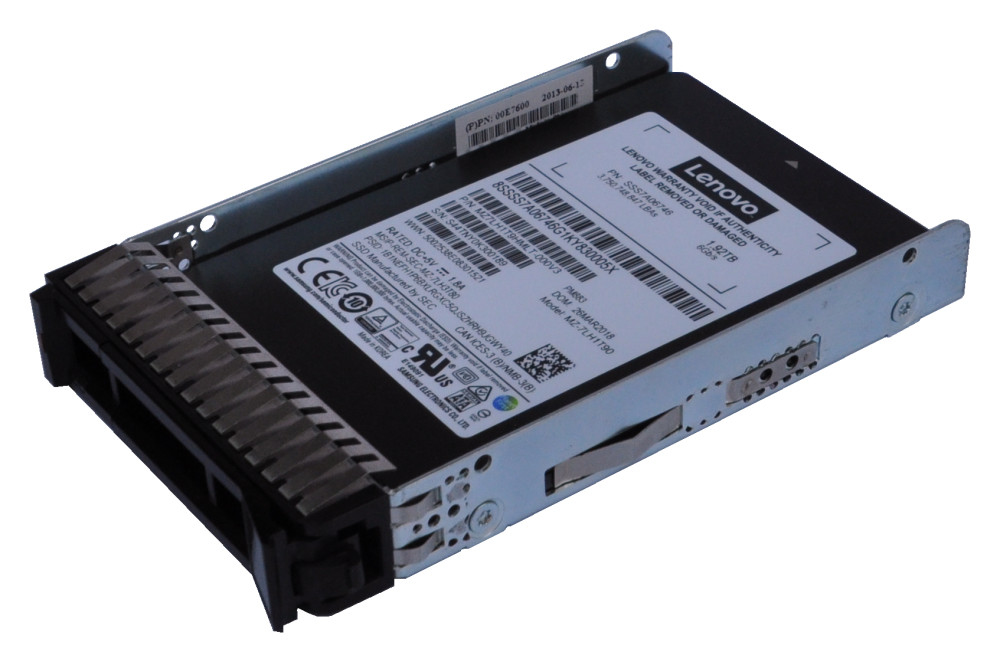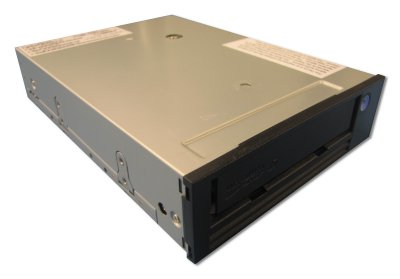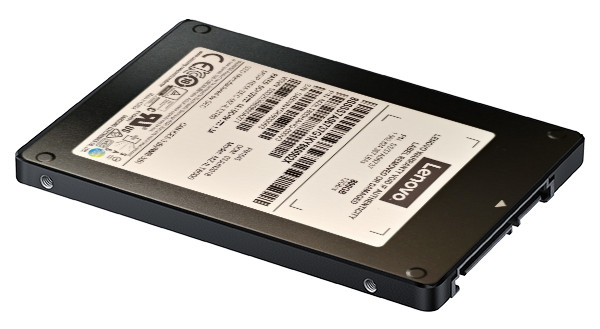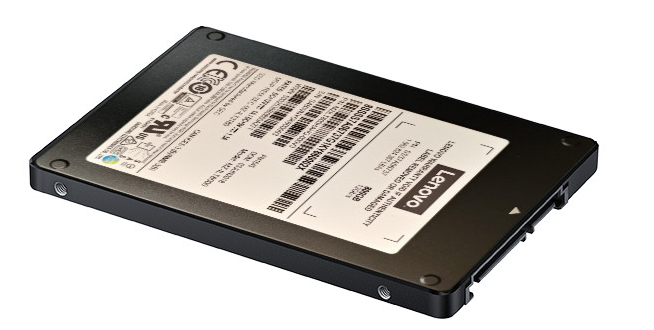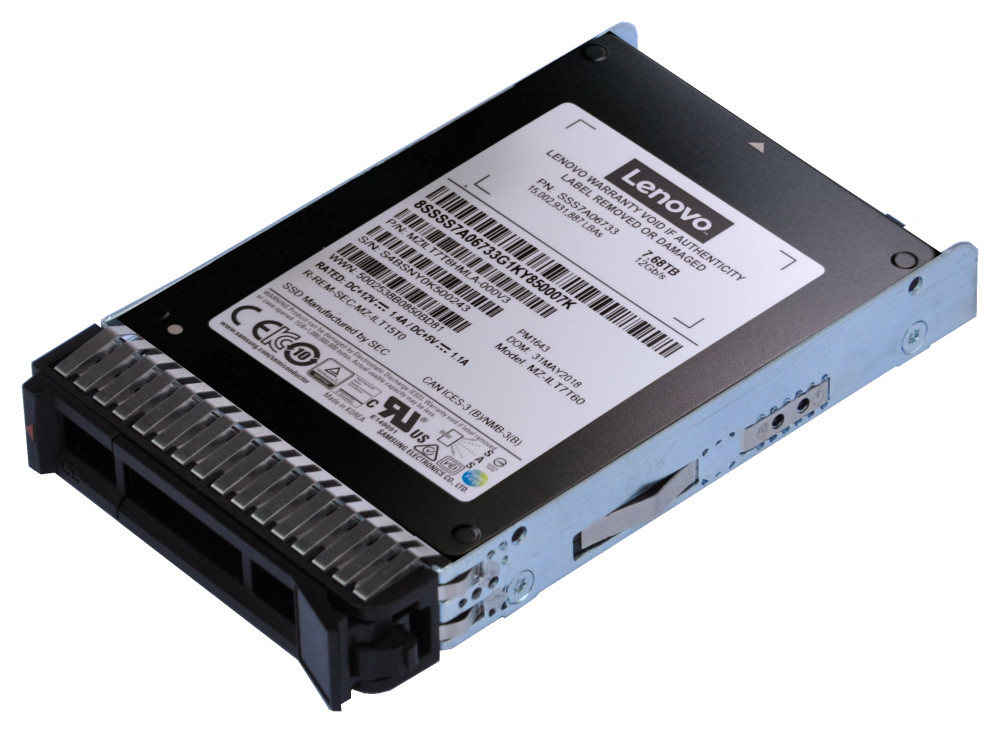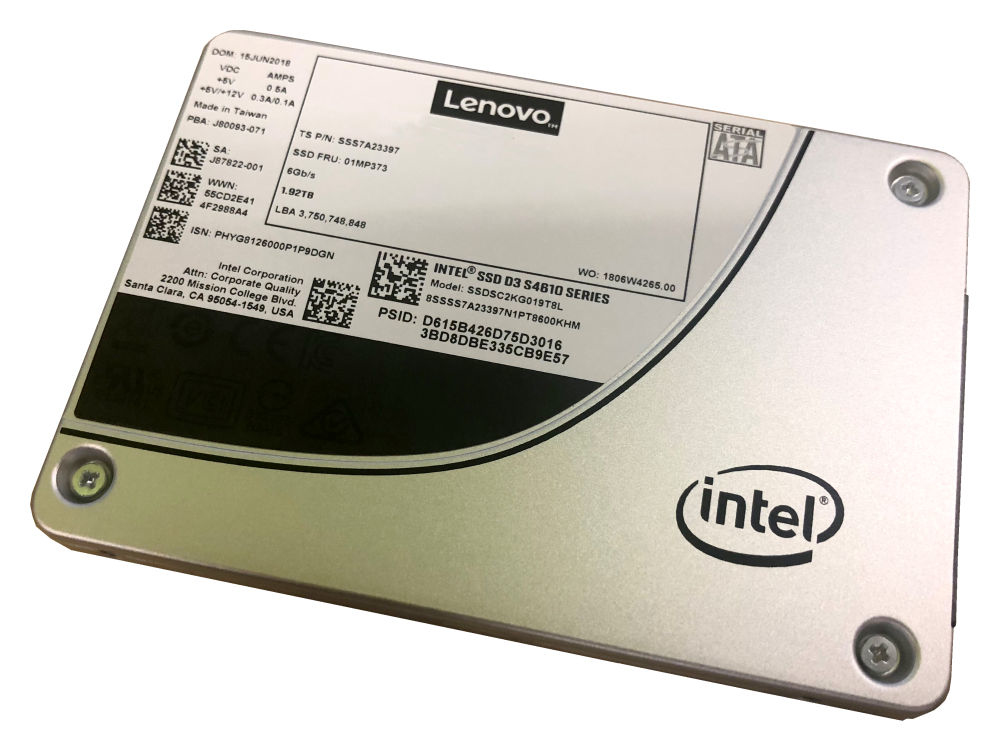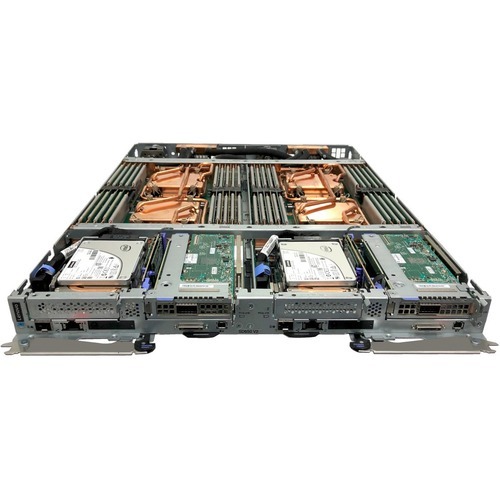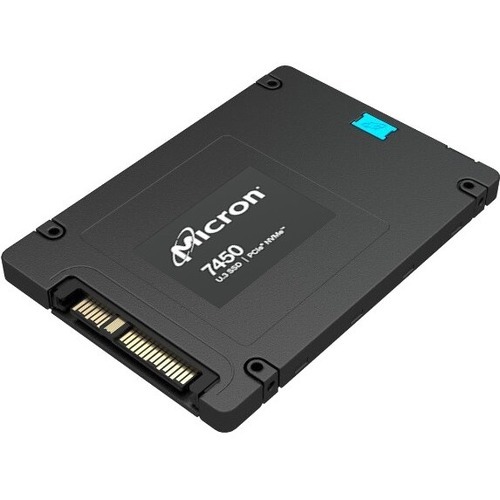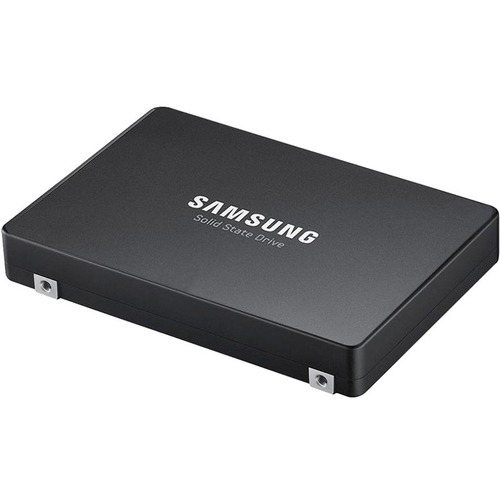Lenovo 4XB7A10198 Lenovo 4XB7A10198 internal solid state drive 2.5"" 1.92 TB Serial ATA III V-NAND
The Lenovo ThinkSystem PM883 Entry SATA 6Gb solid-state drives (SSDs) in capacities ranging from 240 GB to 7.86 TB are general-purpose SSDs based on the Samsung PM883 platform. They are engineered for greater performance and endurance in a cost-effective design, and to support a broader set of workloads.This product guide provides essential presales information to understand the PM883 Entry SATA SSD offerings and their key features, specifications, and compatibility. This guide is intended for technical specialists, sales specialists, sales engineers, IT architects, and other IT professionals who want to learn more about the SSDs and consider their use in IT solutions.
Lenovo 4T27A10726 Lenovo 4T27A10726 backup storage device Storage drive Tape Cartridge LTO 2.5 GB
LTO Generation 6 tape drives feature hardware-based data encryption capabilities and support write once, read many (WORM) cartridges to help protect your data. With WORM cartridges you can store vital data in a non-erasable, non-rewritable format, while AES256 hardware encryption can securely store data to help ensure compliancy with data security, information disclosure, and privacy regulations for data at rest.This drive is compatible with the cartridges of its predecessor, the Half-High LTO Ultrium 5 Tape Drive. It can also read generation 4 cartridges.
Lenovo 4XB7A13654 Lenovo 4XB7A13654 internal solid state drive 2.5"" 1.6 TB SAS
The ThinkSystem PM1645 Mainstream SAS 12Gb solid-state drives (SSDs) in capacities of up to 3.2 TB are next-generation high-performance SSDs suitable for a wide range of applications of running on ThinkSystem servers.This product guide provides essential presales information to understand the Enterprise Mainstream 12Gb SAS SSD offerings and their key features, specifications, and compatibility. This guide is intended for technical specialists, sales specialists, sales engineers, IT architects, and other IT professionals who want to learn more about the SSDs and consider their use in IT solutions.
Lenovo 4XB7A13645 Lenovo 4XB7A13645 internal solid state drive 2.5"" 3.84 TB Serial ATA III V-NAND
The PM1643 Capacity/Entry SAS 12Gb solid-state drives (SSDs) from Lenovo provide high-performance, reliable storage solutions for high-capacity enterprise applications. Designed for dense storage and with a 12 Gb SAS interface, these drives feature all the capacity and performance that is needed to replace large numbers of 15K rpm and 10K rpm spinning disks, and consolidate storage into tightly packed server configurations.This product guide provides essential presales information to understand the PM1643 Capacity SAS 12Gb SSD offerings and their key features, specifications, and compatibility. This guide is intended for technical specialists, sales specialists, sales engineers, IT architects, and other IT professionals who want to learn more about the SSDs and consider their use in IT solutions.
Lenovo 4XB7A13636 Lenovo Intel S4610 2.5"" 1.92 TB Serial ATA III 3D TLC NAND
The Intel S4610 Mainstream SATA solid-state drives (SSDs) for Lenovo servers are advanced data center SSDs optimized for mixed read-write performance, endurance and strong data protection. Compared with the Intel S4600 series, these new drives offer improved performance and lower latency.The Intel SSD S4610 drives with 3 full drives writes per day (DWD) are an excellent choice as cache in transactional application and high-speed storage for enterprise databases.The Intel S4610 Enterprise Mainstream SATA solid-state drive is shown in the following figure.The key difference between Performance SSDs such as the S3710 SSDs, Mainstream SSDs such as the S4610 SSDs, and Entry SSDs, such as the S4510 SSDs, is their endurance (life expectancy). SSDs have a huge, but finite, number of program/erase (P/E) cycles, which determines how long the drives can perform write operations and thus their life expectancy. Mainstream SSDs have better endurance than the Entry SSDs, but at a higher cost/IOPS ratio.SSD write endurance is typically measured by the number of program/erase cycles that the drive can incur over its lifetime, which is listed as TBW in the device specification. The TBW value that is assigned to a solid-state device is the total bytes of written data that a drive can be guaranteed to complete. Reaching this limit does not cause the drive to immediately fail; the TBW simply denotes the maximum number of writes that can be guaranteed.A solid-state device does not fail upon reaching the specified TBW, but at some point after surpassing the TBW value (and based on manufacturing variance margins), the drive reaches the end-of-life point, at which time the drive goes into read-only mode. Because of such behavior, careful planning must be done to use SSDs in the application environments to ensure that the TBW of the drive is not exceeded before the required life expectancy.For example, the S4610 960 GB drive has an endurance of 6.0 PB of total bytes written (TBW). This means that for full operation over five years, write workload must be limited to no more than 3,288 GB of writes per day, which is equivalent to 3.4 full drive writes per day (DWPD). For the device to last three years, the drive write workload must be limited to no more than 5,479 GB of writes per day, which is equivalent to 5.7 full drive writes per day.
Lenovo 4XB7A13635 Lenovo 4XB7A13635 internal solid state drive 2.5"" 960 GB Serial ATA III 3D TLC NAND
The Intel S4610 Mainstream SATA solid-state drives (SSDs) for Lenovo servers are advanced data center SSDs optimized for mixed read-write performance, endurance and strong data protection. The drives are available in either 2.5-inch or 3.5-inch drive form factor.This product guide provides essential presales information to understand the S4610 SSD offerings and their key features, specifications, and compatibility. This guide is intended for technical specialists, sales specialists, sales engineers, IT architects, and other IT professionals who want to learn more about S4610 SSDs and consider their use in IT solutions.The Intel S4610 Mainstream SATA solid-state drives (SSDs) for Lenovo servers are advanced data center SSDs optimized for mixed read-write performance, endurance and strong data protection. Compared with the Intel S4600 series, these new drives offer improved performance and lower latency.The Intel SSD S4610 drives with 3 full drives writes per day (DWD) are an excellent choice as cache in transactional application and high-speed storage for enterprise databases.The Intel S4610 Enterprise Mainstream SATA solid-state drive is shown in the following figure.By combining the Intel 3D NAND TLC Flash Memory technology and Intel’s latest controller, the design of Intel S4610 Mainstream SATA SSDs delivers consistent performance, reduced power consumption, and end-to-end data protection, as well as being optimized for endurance and IOPS/watt.Rigorous testing of Intel S4610 Mainstream SATA SSDs by Lenovo through the ServerProven® program ensures a high degree of storage subsystem compatibility and reliability. Providing additional peace of mind, these drives are covered under Lenovo warranty.The key difference between Performance SSDs such as the S3710 SSDs, Mainstream SSDs such as the S4610 SSDs, and Entry SSDs, such as the S4510 SSDs, is their endurance (life expectancy). SSDs have a huge, but finite, number of program/erase (P/E) cycles, which determines how long the drives can perform write operations and thus their life expectancy. Mainstream SSDs have better endurance than the Entry SSDs, but at a higher cost/IOPS ratio.SSD write endurance is typically measured by the number of program/erase cycles that the drive can incur over its lifetime, which is listed as TBW in the device specification. The TBW value that is assigned to a solid-state device is the total bytes of written data that a drive can be guaranteed to complete. Reaching this limit does not cause the drive to immediately fail; the TBW simply denotes the maximum number of writes that can be guaranteed.A solid-state device does not fail upon reaching the specified TBW, but at some point after surpassing the TBW value (and based on manufacturing variance margins), the drive reaches the end-of-life point, at which time the drive goes into read-only mode. Because of such behavior, careful planning must be done to use SSDs in the application environments to ensure that the TBW of the drive is not exceeded before the required life expectancy.For example, the S4610 960 GB drive has an endurance of 6.0 PB of total bytes written (TBW). This means that for full operation over five years, write workload must be limited to no more than 3,288 GB of writes per day, which is equivalent to 3.4 full drive writes per day (DWPD). For the device to last three years, the drive write workload must be limited to no more than 5,479 GB of writes per day, which is equivalent to 5.7 full drive writes per day.
Lenovo 4XB7A13975 Lenovo 4XB7A13975 internal solid state drive 2.5"" 960 GB PCI Express 4.0 3D TLC NAND NVMe
The ThinkSystem 7450 PRO Read Intensive NVMe SSDs are general-purpose yet high-performance family of NVMe solid-state drives. They are engineered for greater performance and endurance in a cost-effective design, and to support a broader set of workloads. Now with SED encryption as standard, these drives help ensure data security, even when the drive is removed from the server.
Lenovo 4XB7A13976 Lenovo 4XB7A13976 internal solid state drive 2.5"" 1.92 TB PCI Express 4.0 3D TLC NAND NVMe
The ThinkSystem 7450 PRO Read Intensive NVMe SSDs are general-purpose yet high-performance family of NVMe solid-state drives. They are engineered for greater performance and endurance in a cost-effective design, and to support a broader set of workloads. Now with SED encryption as standard, these drives help ensure data security, even when the drive is removed from the server.This product guide provides essential presales information to understand the ThinkSystem 7450 PRO Read Intensive NVMe SSDs offerings and their key features, specifications, and compatibility. This guide is intended for technical specialists, sales specialists, sales engineers, IT architects, and other IT professionals who want to learn more about the 7450 PRO SSDs and consider their use in IT solutions.
Lenovo 4XB7A81999 Lenovo 2.5IN PM1733A 30.72TB RI NVME SSD
Lenovo PM1733a 30.72 TB Solid State Drive - 2.5" Internal - U.3 (PCI Express NVMe 4.0 x4) - Read Intensive - Server Device Supported - 1 DWPD - 56064 TB TBW - 7500 MB/s Maximum Read Transfer Rate - 1 Year Warranty - 1 Pack
Get a Quote
Item(s) added to cart
Netgear GS105E-200NAS ProSafe Plus Switch, 5-Port Gigabit Ethernet - 5 Ports - 2 Layer Supported - Wall Mountable - Lifetime Limited Warranty-None Listed Compliance
MFR: Netgear, Inc
Qty: 1
Part #: GS105NA

